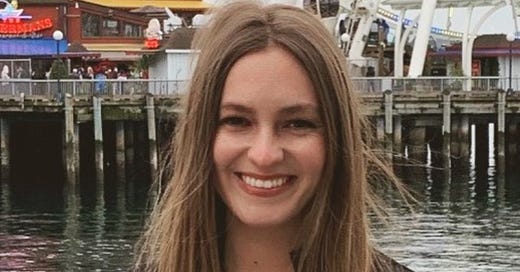This is part of a series of guest posts featuring local writers. This post is written by Emily Reynolds, Community Impact & Communications Director with American Heart Association.
Nutrition Policy
Lack of reliable public transportation, houselessness, long commutes to the nearest doctor, limited employment opportunities and a diminishing availability of affordable, nutritious foods. These are lived experiences of Buckley Washington residents and individuals in rural communities across the country. Consequently, people who live in rural areas experience higher rates of preventable chronic diseases like hypertension and Type 2 Diabetes1. Compared to their urban counterparts, they face a 40% higher likelihood of developing heart disease, a gap that continues to widen despite overall improvements in cardiovascular disease outcomes2.
The American Heart Association is committed to addressing rural health inequities and has issued a call to action to improve the health of rural populations by addressing the social determinants of health to reduce urban-rural disparities, investing in research, supporting policy reform and developing rural-specific, community-guided solutions.
The Heart Association collaborated with Bonney Lake Food Bank (BLFB), one of the largest hunger relief organizations in East Pierce County, to update their existing nutrition policy to elevate their commitment to health by increasing the abundance of nutritious options available to their clients. Rooted in BLFB’sunderstanding that food is a powerful, holistic and cost-effective intervention in the prevention and treatment of disease, the revised policy catalyzes their food is medicine approach. Their team of staff and volunteers is dedicated to the provision of foods that support positive health outcomes.
The policy was adopted in December 2022 and incorporates evidence-based rationale, via the Health Eating Research Nutrition Guidelines (HER) to guide purchases, donation procurement and distribution of food across BLFB’s five food programs that reach more than 20,000 people each month. To prioritize the health of their community, BLFB’s policy highlights items that meet nutritional needs, including whole grains, lean proteins, a colorful variety of local produce and low-sodium options to combat the increased heart disease risk factors experienced by residents of rural communities. The policy also directs BLFB to avoid purchasing items that detract from good heart health, such as sugar-sweetened beverages and candy.
“The Market has always prioritized the nutritional value of our assortment for our customers, knowing that in our country not everyone can afford to own good health. By collaborating with the American Heart Association on an organizational health policy, we are saying to our community and our stakeholders that we take this commitment seriously,” said Stacey Crnich, CEO of Bonney Lake Food Bank.
To supplement the nutrition policy, the American Heart Association provided templates and supported the development of a donor guide to communicate BLFB client’s specific requests that reflect dietary and cultural needs. For additional resources and networking, our team connected BLFB to the Washington Food Coalition, a coalition of emergency food providers. This connection allows BLFB to take advantage of support from the Health Centered Food Banking project which aims to create healthier food environments. The Health Centered Food Banking Project’s Registered Dietician nutrition consultant oversaw the development of the policy and provided stipend funds to compensate BLFB for investing time toward policy development and implementation.
“The American Heart Association is a wealth of information and resources. We are grateful for the collaborative efforts to increase healthy equity at The Market,” said Dr. Teri Hochstein, Chief Impact and Strategy Officer at Bonney Lake Food Bank.
Bonney Lake Food Bank sets themselves apart from other area food banks by working to dismantle oppressive systems that drive inequities through an innovative and proactive approach. This approach is reflected in their partnerships, programming and legislative advocacy to promote racial and food justice and contribute to the region’s economic development. Fittingly, their policy underscores the link between access to nutrition and health equity, especially in rural communities.
Grounded in their belief that access to healthy food is a basic human right, rather than a luxury, BLFB welcomes clients into their bright and thoughtfully designed Market. To support clients who face challenges to visiting the Market in person, BLFB secured a congressional appropriation that they applied toward an innovative solution: wi-fi enabled refrigerated lockers. The pilot locker is located at the Market, BLFB’s model program, in Buckley and another 12 will be strategically placed in areas where individuals lack access to transportation like nearby Carbonado, Wilkeson and South Prairie. Individuals order online, receive a code when their food is ready, and can pick up items at a time that’s convenient for them.
The tireless Bonney Lake Food Bank team has their sights set on further expansion including acquiring a larger gathering space, hiring additional staff and building out community outreach services to dedicate more time and resources toward healthy living opportunities. The American Heart Association and Bonney Lake Food Bank continue to co-develop a strategy for a self-measured blood pressure education, screening and referral initiative to address the elevated prevalence of hypertension in rural communities. We plan to launch the program in the spring of 2024.



